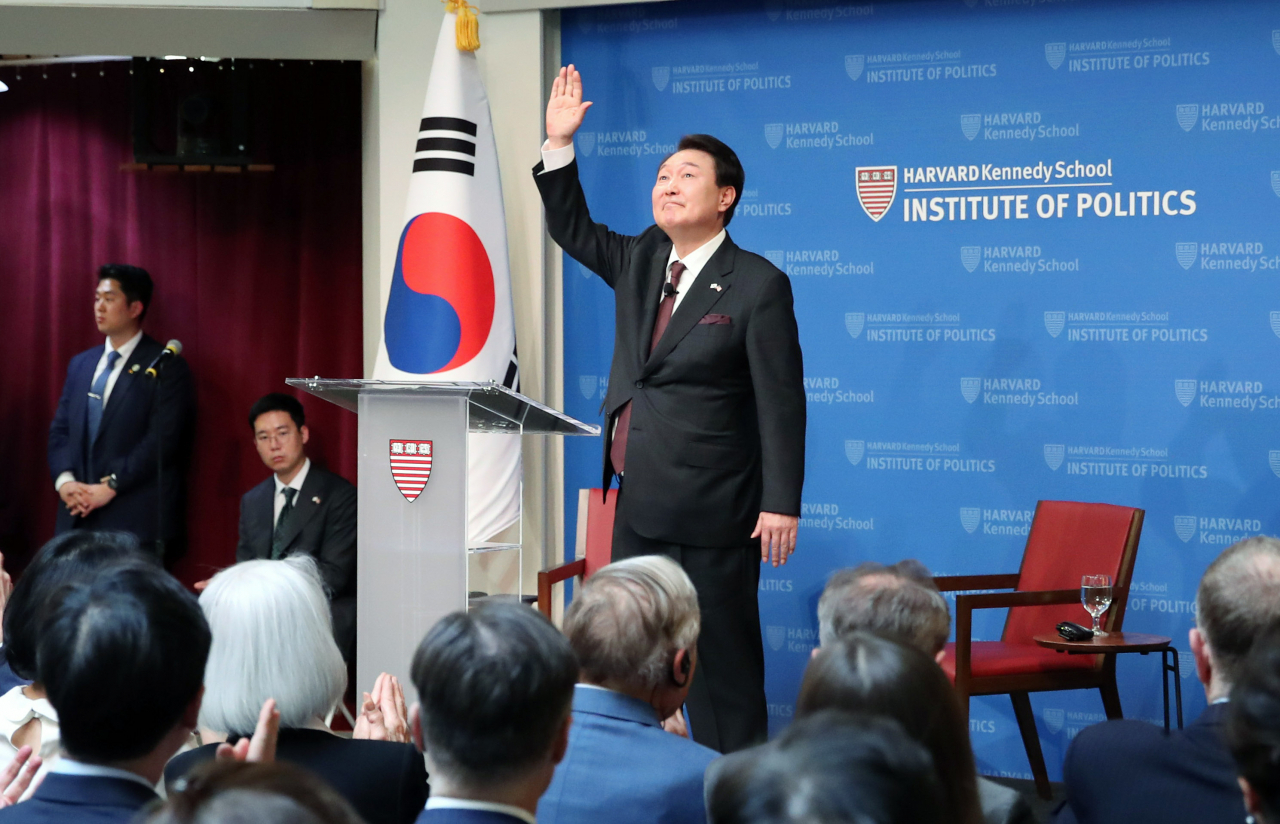S. Korea can develop nuclear weapons but chooses not to: Yoon
By Shin Ji-hyePublished : April 29, 2023 - 10:38

South Korea possesses the necessary technological capabilities to rapidly acquire nuclear weapons, potentially within a year, should it decide to pursue that path. However, South Korea has deliberately chosen to uphold its commitment to the Nuclear Non-Proliferation Treaty, President Yoon Suk Yeol said Friday.
Speaking at Harvard University’s Kennedy School in Boston, Yoon addressed growing public calls within South Korea for the country to pursue its own nuclear armament amid escalating North Korean missile threats.
“However, nuclear weapons are not just a matter of technology. There are complex politics and economics and political and economic equations related to nuclear weapons,” he said. “There are various values and interests that must be given up when possessing nuclear weapons.”
When asked about whether the Washington Declaration implies South Korea's recognition of North Korea's possession of nuclear weapons, he said it did not.
"I object to approaching North Korea's nuclear issue as disarmament, not as denuclearization,” he said.
Yoon and Biden said they adopted the declaration during their summit on Wednesday.
Under the Washington Declaration, South Korea and the US will launch a nuclear consultation group as a new mechanism to focus on nuclear and strategic planning issues. It would facilitate "systematic operations" of information sharing and the movements of strategic assets of the two countries.
President Yoon said of the Washington Declaration that it was an “inevitable choice.”
He believes that the declaration is more effective than NATO nuclear sharing because it was signed bilaterally.
Regarding Korea-Japan relations, he said there will be a lot of emotional conflicts related to the colonial period in the past, but “We can't move forward unless the historical issue is sorted out."
The Asahi Shimbun reported on the day that the governments of Korea and Japan are coordinating the direction of Japanese Prime Minister Fumio Kishida's visit to Korea on May 7-8.
Shuttle diplomacy between Korea and Japan has been suspended for more than a decade. The last time it was active was in December 2011, when former President Lee Myung-bak visited Kyoto and held talks with then-Prime Minister Yoshihiko Noda.



















![[Today’s K-pop] Treasure to publish magazine for debut anniversary](http://res.heraldm.com/phpwas/restmb_idxmake.php?idx=642&simg=/content/image/2024/07/26/20240726050551_0.jpg&u=)